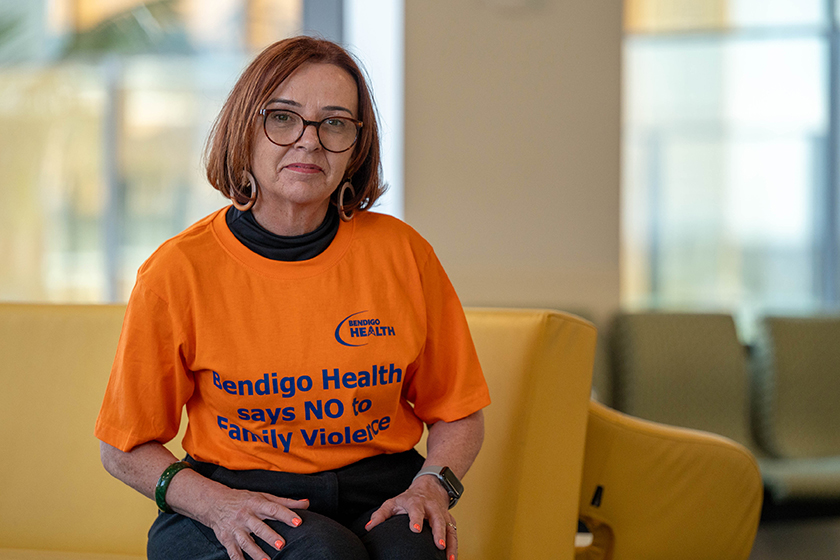
As the 16 Days of Activism begins (25 November to 10 December), it’s important to be a part of changing the underlying social conditions that produce and drive this violence, that excuse, justify or even promote it – that is, challenging the gendered drivers of partner violence.
Violence against women is preventable if we change the culture that allows it to happen.
To do this, Bendigo Health’s antenatal collaborative care teamwork discretely and sensitively to help pregnant people in complex situations navigate their healthcare journey safely, and ensure mothers and their babies are looked after.
Some patients may be in a difficult domestic, or family violence situation at home, which can have an effect on their health and ability to ask for help.
“It’s not an easy thing to talk about, but it’s about picking up on the red flags and supporting when and where you can,” Bendigo Health Chief Nursing and Midwifery Officer Carol-Anne Lever said.
“When you have a mother in a domestic violence situation, a lot of the time they may have the perpetrator with them for appointments.
“Our midwives create a space where their clients feel safe.”
Research shows pregnant people in domestic or family violence situations were more likely to have a premature and smaller child.
It also says people are more likely to see domestic or family violence situations begin or worsen once they become pregnant.
“It’s important for us to ensure these people don’t get swallowed up in the healthcare system,” Carol-Anne said.
This service brings together a range of clinicians including midwifery and medical staff, social workers and mental health clinicians as well as care teams in regional health services. to ensure these patients are supported.
They also have access to outside services such as Sunshine Bendigo, Orange Door and Maternal and Child Health Nurses.
But for the midwives, it’s also about continuity of care.
“Midwives say they can physically see these people relax when they know you’re in the appointment because you build trust,” Carol-Anne said.
“They know they don’t have to keep repeating their story, bringing up the trauma. Sometimes it’s the small things like that that will make a big difference.”
Carol-Anne said she hoped looking out for signs and starting the conversation will become a normal part of practice for all clinicians.
Find out what events are on across Bendigo throughout the 16 Days of Activism here.